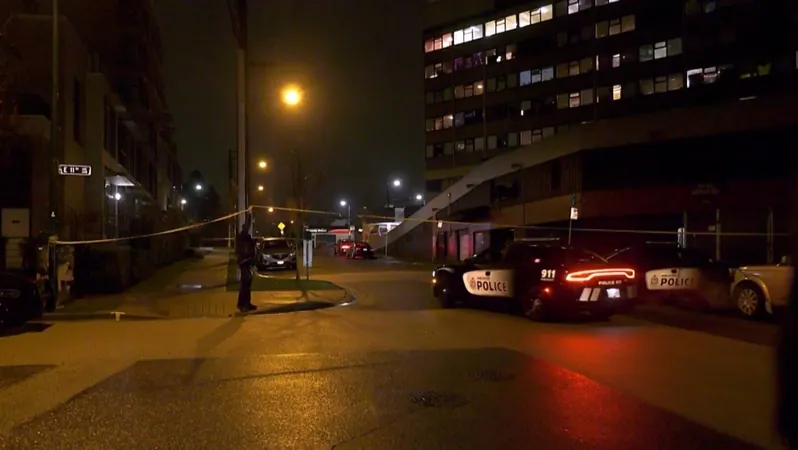
Controversial Ruling: Vancouver Man Who Stabbed Senior Gets Conditional Sentence Instead of Jail Time
2024-10-11
Author: Liam
In a shocking decision, a Vancouver court has granted 31-year-old Anthony Warren Woods a conditional sentence for the fatal stabbing of 72-year-old Alex Gortmaker, sparking intense debate over the judicial system's handling of violent crimes. The incident, which took place in December 2020 inside the Biltmore Hotel, has raised concerns regarding accountability and the safety of the community.
Woods pleaded guilty to manslaughter in the stabbing, which occurred during a seemingly minor altercation inside a hotel elevator. On December 15, 2020, Woods, under the influence of alcohol and drugs, confronted Gortmaker, resulting in a single knife wound that ultimately claimed the elderly man's life. The altercation escalated quickly, and witnesses reported the chaotic atmosphere as Woods and a friend previously behaved disruptively throughout the hotel.
Surveillance footage shows the moments leading up to the attack, capturing Woods producing a knife and stabbing Gortmaker in the upper left chest—a scene that has been incredibly distressing for those who witnessed it. Despite urgent attempts by bystanders to assist the bleeding victim, he succumbed to his injuries at the scene.
In a twist to the unfolding tragedy, Woods exhibited signs of distress immediately after the incident. Witness reports indicated that he jumped from a balcony in a frenzied state, raising questions about his mental well-being. Following the stabbing, police located Woods, and he later confessed to the crime, expressing remorse during his interrogation.
However, the case became controversial when Judge Reginald Harris deemed Woods' culpability as substantially reduced due to his painful experiences as an Indigenous person, his history of childhood abuse, and cognitive disabilities such as ADHD. This ruling has ignited critical discussions about the implications of mental health and systemic issues affecting Indigenous individuals and their treatment in the justice system.
As Woods received a conditional two-year sentence—essentially allowing him to avoid jail time if he adheres to strict conditions—public reaction has been mixed. Sandra Gortmaker, the victim's niece, provided a heartrending victim impact statement, revealing the deep emotional scars left by her uncle’s violent death. She described her uncle as a peaceful man whose life was "brutally taken" and lamented the lasting void his absence has created in her family.
Crown prosecutors sought a four-year prison sentence, while Woods' defense argued for a shorter conditional term due to his lack of a prior criminal record and reported engagement in addiction rehabilitation since the incident. The final decision has left both sides dissatisfied, fueling ongoing debates about adequacy in sentencing for violent crimes and the potential for rehabilitation versus the need for public safety.
As Woods begins his conditional sentence, he is required to remain in a recovery home for 24 hours a day during the first year and abide by strict protocols, including abstaining from drugs and alcohol. The hope for both the community and the victim's family is that this incident serves as a catalyst for deeper discussions about violence, addiction, and the broader implications of mental health in the criminal justice system.
Will this controversial ruling prompt necessary reforms in Vancouver's approach to such crimes? Only time will tell as the community grapples with the consequences.









 Brasil (PT)
Brasil (PT)
 Canada (EN)
Canada (EN)
 Chile (ES)
Chile (ES)
 España (ES)
España (ES)
 France (FR)
France (FR)
 Hong Kong (EN)
Hong Kong (EN)
 Italia (IT)
Italia (IT)
 日本 (JA)
日本 (JA)
 Magyarország (HU)
Magyarország (HU)
 Norge (NO)
Norge (NO)
 Polska (PL)
Polska (PL)
 Schweiz (DE)
Schweiz (DE)
 Singapore (EN)
Singapore (EN)
 Sverige (SV)
Sverige (SV)
 Suomi (FI)
Suomi (FI)
 Türkiye (TR)
Türkiye (TR)